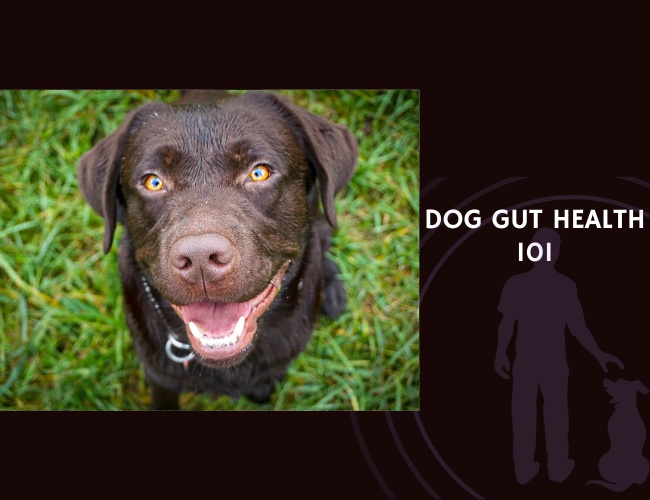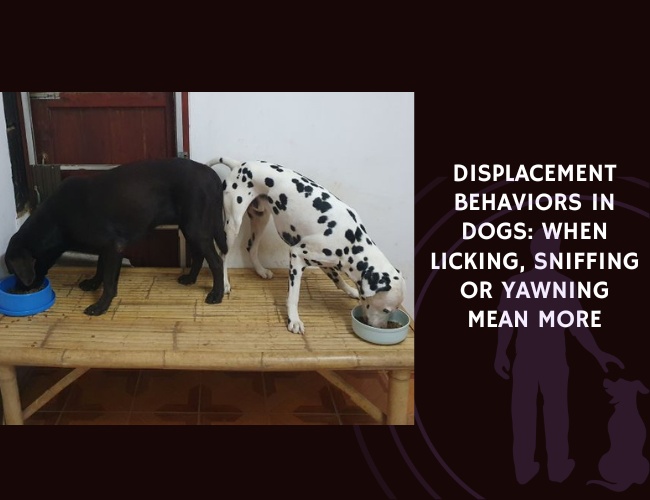Introduction to the Canine Gut Microbiome
Definition of the Gut Microbiome and its Basic Components
The gut microbiome is a community of microorganisms residing within the digestive tract of dogs. Comprising bacteria, fungi, viruses, and other microbes, these organisms coexist symbiotically with their canine host. Critical components of the gut microbiome include various bacterial species, predominantly from the Firmicutes and Bacteroidetes phyla. These bacteria perform essential functions related to digestion, immune response, and overall health.
Overview of the Trillions of Microorganisms Present in Dogs’ Digestive Systems
The canine gut microbiome is a complex ecosystem encompassing trillions of microorganisms. This diverse population of microbes includes not only bacteria but also archaea, fungi, and viruses. The digestive tract, particularly the intestines, provides an ideal environment for these organisms to thrive. Here, they form intricate relationships that influence various physiological processes. Each dog’s microbiome is unique, shaped by factors such as genetics, diet, and environment, with constantly shifting compositions over time.
Basic Understanding of Why the Microbiome Matters for Dog Health
The significance of the gut microbiome extends beyond digestion. It plays a pivotal role in nutrient absorption, ensuring that dogs receive essential vitamins and amino acids. A balanced microbiome suppresses harmful pathogens, aiding in disease prevention and enhancing immune function. Furthermore, the gut flora influences metabolic processes and weight management, contributing to a dog’s overall well-being. Disruptions in the microbiome can lead to issues like gastrointestinal disorders, obesity, and even behavioral changes.
To further support your dog’s gut health, understanding these fundamentals sets the stage for exploring how diet, age, and other factors intricately interact with the microbiome.
Key Functions of the Dog’s Gut Microbiome
Role in Digestion and Nutrient Absorption
The canine gut microbiome plays a paramount role in digestion and nutrient absorption. It comprises trillions of microorganisms, including bacteria, viruses, fungi, and protozoa. These microorganisms assist in breaking down complex carbohydrates, proteins, and fats that are otherwise indigestible by the dog’s own enzymes. Bacteria from the Firmicutes and Bacteroidetes phyla are particularly adept at this process. By fermenting dietary fibers, these bacteria produce short-chain fatty acids (SCFAs) like butyrate, acetate, and propionate, which are vital energy sources for the cells lining the gut.
Moreover, the microbiome helps in synthesizing essential vitamins such as vitamin K and certain B vitamins, which are crucial for overall metabolic processes and energy production. Efficient nutrient absorption is critical for maintaining a dog’s energy levels, growth, and overall health.
Contribution to Immune System Function and Disease Prevention
The gut microbiome is intrinsically linked to the dog’s immune system. Around 70% of the immune system is located within the gastrointestinal tract. The microorganisms present in the gut interact with immune cells, helping to regulate immune responses and maintain a state of immune homeostasis. Beneficial bacteria play a key role in preventing the colonization of pathogenic microorganisms by competing for nutrients and attachment sites, a process known as competitive exclusion.
These beneficial bacteria also produce antimicrobial peptides and compounds that inhibit the growth of harmful bacteria. This not only helps in protecting the dog from infections but also in developing tolerance towards non-harmful antigens, reducing the risk of allergies and autoimmune diseases. Hence, a balanced gut microbiome is essential for a robust immune system and effective disease prevention.
Influence on Metabolism and Weight Management
The gut microbiome significantly influences a dog’s metabolism and weight management. Different bacterial species have varying effects on nutrient absorption and energy extraction from the diet. For instance, certain microbiota are more efficient at harvesting energy from carbohydrates, which can impact the dog’s caloric intake and eventually its weight.
Additionally, gut bacteria play a role in regulating the release of hormones such as ghrelin and leptin, which are involved in hunger and satiety signals. An imbalance in the microbiome can lead to dysregulation of these hormones, resulting in overeating or insufficient calorie intake.
Research has shown that dogs with a higher ratio of Firmicutes to Bacteroidetes tend to extract more calories from their food and are more prone to obesity. Conversely, a balanced and diverse microbiome can aid in maintaining a healthy weight and preventing metabolic disorders.
Understanding these key functions highlights the importance of maintaining a balanced gut microbiome for the optimal health and well-being of dogs.
Factors Affecting Your Dog’s Gut Health
Impact of Diet and Dietary Changes on Microbiome Balance
What your dog eats plays a crucial role in shaping its gut microbiome. A consistent, high-quality diet helps maintain a stable and healthy microbial community, which is vital for overall well-being.
- Diet Composition: Diets rich in proteins, fats, fibers, and balanced nutrients impact the types of microorganisms thriving in the gut. For example, high-fiber diets promote the growth of beneficial bacteria such as Bifidobacteria, which help in breaking down complex carbohydrates and fiber.
- Dietary Changes: Sudden changes in diet can disrupt the delicate balance of the microbiome. Switching food sources rapidly can cause gastrointestinal issues like diarrhea or vomiting, as the gut flora need time to adapt to new nutrients.
- Food Quality: Ingredients in commercial dog foods vary considerably. Foods with artificial additives, preservatives, and low-quality proteins can negatively affect the gut microbiome. Conversely, fresh, natural, and nutrient-dense foods support a diverse and robust microbial community.
- Prebiotics and Probiotics: Including prebiotic fibers and probiotics in your dog’s diet fosters a healthy microbiome by promoting the growth of beneficial bacteria. Prebiotics serve as food for these bacteria, while probiotics introduce live beneficial bacteria directly into the gut.
Influence of Age, Breed, and Environmental Factors
Several intrinsic and extrinsic factors influence the diversity and balance of the canine gut microbiome.
- Age: Puppies have a different microbiome composition compared to adult dogs. As dogs age, their microbiome evolves, with changes in microbial diversity reflecting their developmental stage. Senior dogs may experience a decline in microbiome diversity, potentially affecting their digestive health and immune function.
- Breed: Different breeds exhibit variations in their gut microbiomes. These differences can lead to breed-specific dietary needs and susceptibilities to certain gastrointestinal issues. Understanding breed-related microbiome characteristics can help tailor diets and health interventions accordingly.
- Environmental Factors: A dog’s living environment influences its microbiome. Dogs exposed to varied outdoor environments, diverse diets, and social interactions with other animals tend to have more microbial diversity. Conversely, dogs in more sterile environments might have less diverse microbiomes, possibly making them more susceptible to certain health issues.
Effect of Medications and Antibiotics on Gut Flora
Medications, especially antibiotics, can significantly impact the delicate balance of your dog’s gut microbiome.
- Antibiotics: While antibiotics are essential for treating bacterial infections, they can also harm beneficial gut bacteria. This can lead to dysbiosis—a microbial imbalance that may cause digestive disturbances, reduced nutrient absorption, and a weakened immune system.
- Long-term Medication: Chronic use of certain medications (e.g., steroids, nonsteroidal anti-inflammatory drugs) can alter gut flora. These changes might impair gut health, contributing to long-term health issues.
- Probiotic Supplementation: Following antibiotic use, veterinarians often recommend probiotics to help restore healthy gut bacteria. This intervention can speed up the recovery of microbiome balance and minimize potential side effects.
By understanding and addressing these factors, you can take proactive steps to support your dog’s gut health, ensuring they maintain a thriving and balanced gut microbiome. This, in turn, contributes to overall health, vitality, and well-being.
Signs of a Healthy vs. Unhealthy Gut
Common Indicators of Good Gut Health in Dogs
A healthy gut microbiome is essential for your dog’s overall well-being. Observing your dog’s health can provide insight into the state of their gut microbiome. Common indicators of good gut health include:
- Regular Bowel Movements: Consistent, well-formed stools are a sign that your dog’s digestive system is functioning properly.
- Healthy Coat and Skin: A shiny coat and healthy skin often indicate good nutrient absorption and a balanced microbiome.
- Steady Weight: Maintaining an appropriate weight for their breed and age suggests an efficient metabolism.
- Good Energy Levels: A balanced microbiome can help ensure your dog has adequate energy levels for daily activities.
- Minimal Gastrointestinal Disturbances: A dog experiencing few gastrointestinal issues, such as minimal gas, bloating, or diarrhea, generally has a healthy gut.
Warning Signs of Microbiome Imbalance
It’s important to recognize signs that may indicate an imbalance in your dog’s gut microbiome. An imbalanced microbiome can lead to various health issues. Symptoms to watch for include:
- Chronic Diarrhea or Constipation: Persistent changes in bowel movements can signal an imbalanced gut.
- Excessive Gas: While some gas is normal, excessive gas could indicate a problem.
- Weight Changes: Unexplained weight loss or gain may be associated with metabolic disturbances caused by an imbalanced microbiome.
- Skin Issues: Recurring skin infections, itchiness, or dull fur can indicate poor nutrient absorption and a disrupted microbiome.
- Frequent Infections: An impaired immune system, often linked to gut health, can lead to increased infections.
Behavioral Changes That May Indicate Gut Health Issues
Behavioral changes can also be a clue to underlying gut health problems:
- Lethargy: A decrease in energy levels or a more lethargic demeanor can be a sign of gut issues affecting overall health.
- Altered Appetite: Changes in eating habits, such as loss of appetite or excessive hunger, may signal digestive problems.
- Discomfort: Signs of abdominal discomfort, like whining, restlessness, or changes in sleeping positions, can indicate gut pain.
- Behavioral Changes: Anxiety, aggression, or depression can sometimes be linked to gut health, as the gut-brain axis plays a role in mood regulation.
Maintaining awareness of these indicators is essential for ensuring your dog’s gut remains healthy and functioning properly. The key to a thriving gut microbiome lies in proactive care and early intervention when issues arise.
Keeping an eye on your dog’s gut health involves regular monitoring and prompt action when deviations from the norm are noticed. In the subsequent section, we will discuss various strategies and recommendations to support and maintain your dog’s gut health, creating a foundation for lifelong wellness.
Supporting Your Dog’s Gut Health
Understanding how to maintain and support your dog’s gut health is crucial for their overall well-being. This involves proper dietary choices, the use of probiotics and prebiotics, and incorporating lifestyle changes that foster a healthy gut microbiome.
Dietary Recommendations for Optimal Gut Health
A balanced diet is vital for maintaining your dog’s gut health. Here are some key points to consider:
- High-Quality Protein: Ensure your dog’s diet includes high-quality protein sources such as chicken, beef, fish, or lamb. Protein plays a critical role in muscle maintenance and immune function.
- Healthy Fats: Incorporate healthy fats like omega-3 and omega-6 fatty acids, which are found in fish oil and flaxseed oil. These fats support brain health and help maintain a healthy coat and skin.
- Fibers: Soluble and insoluble fibers, found in vegetables and whole grains, are essential for digestion and help regulate bowel movements. They also serve as prebiotics, feeding beneficial gut bacteria.
- Fermented Foods: Adding fermented foods like plain yogurt or kefir can introduce beneficial bacteria to the gut, aiding in digestion and enhancing the microbiome.
Consistency is also important; avoid making sudden changes to your dog’s diet, as this can disrupt their gut microbiome and lead to gastrointestinal disturbances.
Role of Probiotics and Prebiotics in Maintaining Microbiome Balance
Probiotics and prebiotics are fundamental in maintaining a healthy gut microbiome:
- Probiotics: These are live beneficial bacteria that can enhance gut health. Common probiotic strains like Lactobacillus and Bifidobacterium help maintain a balanced gut flora. Probiotics can be found in supplements or fermented food products designed for dogs.
- Prebiotics: These are non-digestible fibers that promote the growth of beneficial bacteria. Ingredients such as chicory root, dandelion greens, and certain whole grains act as prebiotics, nourishing the gut microbiome.
Both probiotics and prebiotics work synergistically to maintain a balanced and healthy gut environment. Regularly including them in your dog’s diet can help sustain a robust microbiome.
Lifestyle Changes that Promote a Healthy Gut Ecosystem
Several lifestyle factors can contribute positively to your dog’s gut health:
- Exercise: Regular physical activity supports overall health, including digestion and mental well-being. Exercise has been shown to positively impact gut flora by increasing the diversity and abundance of beneficial microbes.
- Stress Management: Reducing stress through routine, proper socialization, and a comfortable living environment can prevent stress-related gut health issues. Chronic stress can negatively alter the gut microbiome balance.
- Hydration: Ensure your dog has access to fresh, clean water at all times. Proper hydration is essential for optimal digestive function and the health of gut bacteria.
- Avoid Unnecessary Antibiotic Use: Antibiotics can disrupt the microbiome balance, eliminating both harmful and beneficial bacteria. Use antibiotics only when prescribed by a veterinarian, and consider probiotics during and after antibiotic treatment to help restore the microbiome.
Combined, these dietary recommendations, the inclusion of probiotics and prebiotics, and mindful lifestyle choices can significantly contribute to maintaining a healthy and balanced gut microbiome for your dog. By focusing on these areas, you can help promote your dog’s overall well-being and longevity.

When to Seek Veterinary Care
Maintaining optimal gut health in your dog is fundamental to their overall wellness. However, certain signs and symptoms may indicate deeper issues that require professional attention. Recognizing these signs and understanding their implications can help you determine when to seek veterinary care.
Recognizing Serious Gut Health Issues
Several symptoms may point towards serious gut health issues that need veterinary intervention. Persistent gastrointestinal symptoms are a key indicator:
- Chronic Diarrhea or Constipation: While occasional digestive upset is common, long-term diarrhea or constipation can hint at deeper problems.
- Vomiting: Frequent vomiting can signify a range of issues, from infections to more severe gastrointestinal disorders.
- Sudden Weight Loss: Unexplained or rapid weight loss often points to an imbalance or underlying disease affecting nutrient absorption.
- Changes in Appetite: A dog that is suddenly disinterested in food or shows unusual eating habits might have a gut health issue.
Additionally, chronic skin conditions, such as excessive itching, redness, and infections, can be linked to gut health. If your dog is exhibiting these symptoms, consult with a veterinarian for an appropriate diagnosis and treatment plan.
When Microbiome Changes Indicate Underlying Health Conditions
Changes in your dog’s gut microbiome can sometimes indicate larger, systemic health issues. Symptoms such as:
- Excessive Gas: While gas is normal, especially after eating, excessive gas can indicate imbalances in gut flora.
- Lethargy or Fatigue: If your dog appears unusually tired or shows reduced energy levels, their digestive system might need attention.
- Behavioral Changes: Mood swings, increased agitation, or signs of discomfort could be linked to the gut-brain axis, where gut health affects mental health.
By monitoring these symptoms, you can help uncover and address potentially deeper health issues. In some cases, changes to the microbiome might be a secondary effect of conditions like liver disease, pancreatitis, or even cancer. Therefore, it is essential to address any suspicions with your veterinarian promptly.
Importance of Regular Veterinary Check-Ups
Regular veterinary check-ups play a crucial role in maintaining your dog’s gut health. During these visits, the veterinarian can monitor any subtle changes in your dog’s overall condition, inspect their diet, and recommend adjustments or supplements to support gut health.
- Routine Exams: Regular physical exams help detect early signs of illness and gut imbalance.
- Fecal Testing: Periodic fecal tests can identify parasitic infections or bacteria outgrowths.
- Dietary Adjustments: Vets can provide tailored dietary recommendations to maintain a balanced gut microbiome.
By leveraging these preventive measures, you can mitigate severe health issues and ensure that your dog’s gut remains healthy and balanced. Seeking veterinary care early can make a considerable difference in your dog’s long-term well-being.
Careful monitoring and regular consultations with your veterinarian are essential in safeguarding your dog’s health. Though diligent at-home care is vital, veterinary expertise provides the necessary insights to maintain and restore gut health, ensuring your dog’s vitality and happiness.









